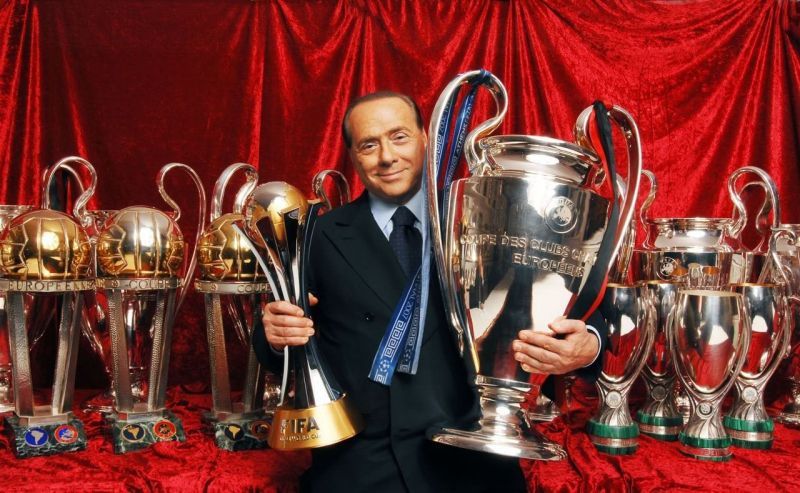
AC Milan’s mysterious Chinese owners & Silvio Berlusconi's legacy
The man behind AC Milan’s rise as a European superpower: Silvio Berlusconi
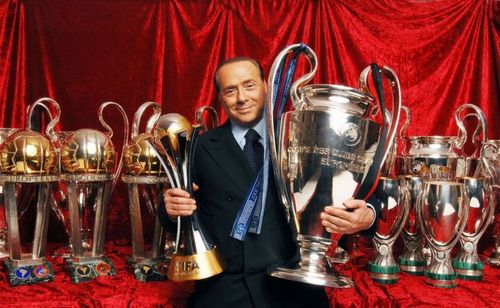
Silvio Berlusconi bought the club in 1986 when it was down on its knees and on the verge of bankruptcy. Footballing wise too, it was no better as the club had been relegated twice in the early 80s. Berlusconi, a flamboyant Italian media tycoon through a tangled web of companies, secured the ownership of AC Milan in 1986. The club was one of a host of entities owned by a holding company; Fininvest which included Mediaset, Italy’s largest private media company.
The takeover turned out to be a huge success for both club and owner as the appointment of legendary manager Arrigo Sacchi helped deliver the club's first Scudetto in nine years. In came the Dutch trio of Ruud Gullit, Marco Van Basten, and Frank Rijkaard, who along with Italian Internationals Paolo Maldini, Franco Baresi and Roberto Donadoni helped Milan win back to back European cups, a feat which has been replicated only by Real Madrid (2017) thereafter.
Milan dominated Italian football for much of the decade after Berlusconi’s arrival, winning 5 Scudetti and 4 European Cups.
Berlusconi meanwhile became the Prime Minister of Italy but his term in the office was cut short as he got mired in corruption allegations. He was eventually found guilty of tax fraud in Mediaset trial and barred from public office. Never the one to shy away from controversies, Berlusconi was cleared of charges of paying Karima El Mahroug, an underaged prostitute, that famously popularised the phrase “Bunga, Bunga” sex parties.
Gradual decline and eventual sale
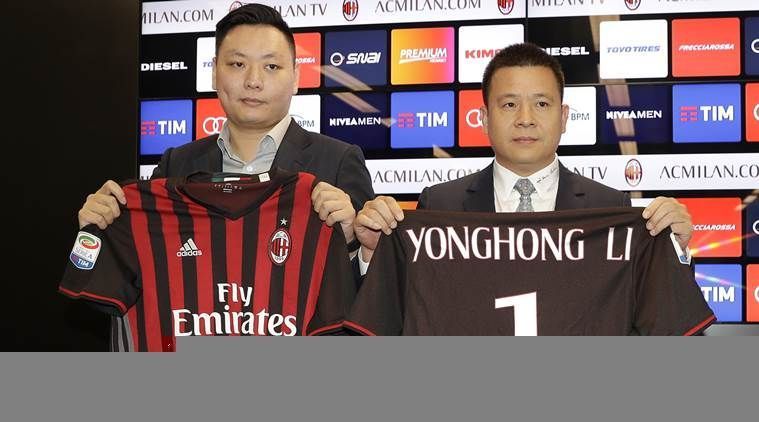
Milan won their last league title in 2011 and since then it has gone downhill for the red half of Milan. In 2012, club legends like Nesta, Inzaghi, Zambrotta, Gattuso, and Seedorf all departed San Siro meaning that the club youngsters had no one to look up to. Talisman players like Ibrahimovic and Thiago Silva also departed for the riches of Paris St-Germain.
A large part of the blame lay with Fininvest, Berlusconi's company, which since the 2007 global financial crisis did not fare well, making an operating loss of €480 million in 2013. Yet, Berlusconi remained the richest man in Italy. In 2016, as a result of this financial meltdown, Berlusconi put up Milan for sale.
After months of struggle, Berlusconi found a potential investor from China. At the time, Chinese President Xi Jinping, a massive football fan himself was beginning to be at the forefront of a Chinese footballing revolution. So, when a Chinese company Sino-Europe Sports Investment Management Changxing Co. bid over €700 million, it seemed that the club was the latest to join Xi’s footballing revolution.
At the centre of this saga was Li Yonghong, a Hong Kong-based businessman, who few had heard about before. The holding company looking to buy AC Milan sat atop a complex web of companies and state-backed investors. A year later, negotiations still dragged on due to a series of red flags, most notably whether the Chinese company actually had the money.
Baton of controversies passes from one owner to another
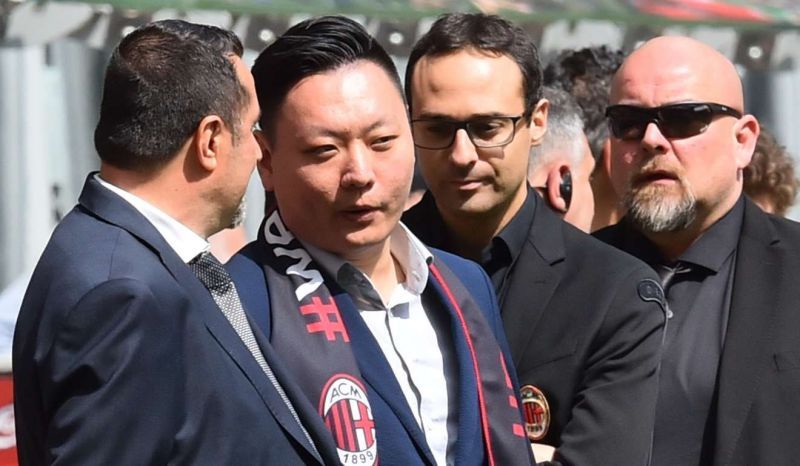
If AC Milan supporters thought they had got rid of their controversial owner, they were hugely mistaken. When International news agency Reuters investigated about the 8 companies, connected to the bid, they found that the shell company had lied about all 8 offices. The New York Times had also discovered that Li’s mining empire wasn’t as lucrative as he had claimed nor was it actually owned by him. There was also a separate issue of forged bank documents holding up the sale. But eventually, the transfer went through in 2017 to what is now known as Rossoneri Sports Investment group headed by Li Yonghong.
Controversies related to Li’s wealth did not end here. In an infamous report by Italian newspaper Corriere Della Sera, it was alleged that Li was, in fact, bankrupt and his assets were being auctioned off on China’s version of eBay. Li strongly denied these rumours and his statement on Milan’s official website read:
“Some media have irresponsibly reported fake news that has damaged the club, my companies, my family and myself,"
"From the day I bought AC Milan, I have faced difficulties and have been under unprecedented pressure.”
"I want therefore to take the opportunity to explain - hoping this will be the last time - that the situation concerning my assets is safe and sound and that both the club and my companies are steadily working.”
Massive Investment yet poor results on-field
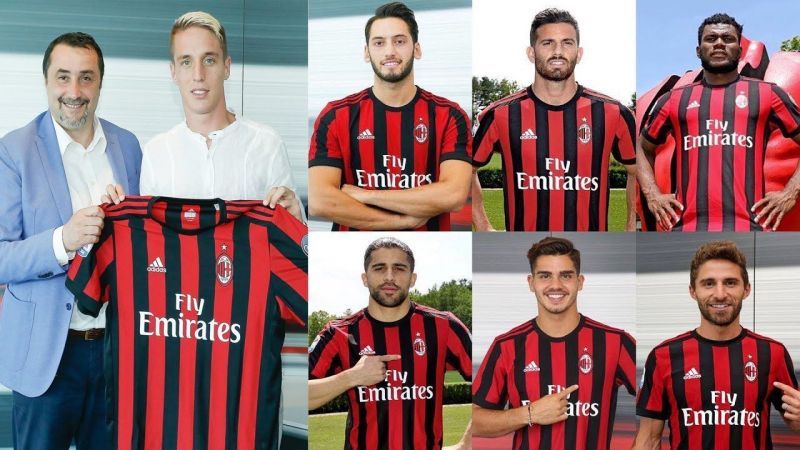
Milan went on a spending spree of more than €200 million in the summer of 2017, buying Leonardo Bonucci, Nikola Kalinic, Andre Silva and Hakan Calhanoglu. To fund this spree, Li managed to secure a $354 million loan from Elliott Management, a controversial US hedge fund. Elliott is also known as a Vulture Fund i.e. a company that buys up bad government debt at low rates followed by fierce litigation to extract repayment.
As results didn’t go according to the script, Manager Vincenzo Montella was shown the exit door and replaced by Milan legend Gennaro Gattuso. Even as Milan was knocked out of the Europa League by Arsenal, Gattuso’s Milan managed to win 8 of their 9 games in Serie A in 2018. With Champions League qualification out of the equation, Gattuso still has a chance to cement a Europa league spot.
UEFA Intervention and an Uncertain future
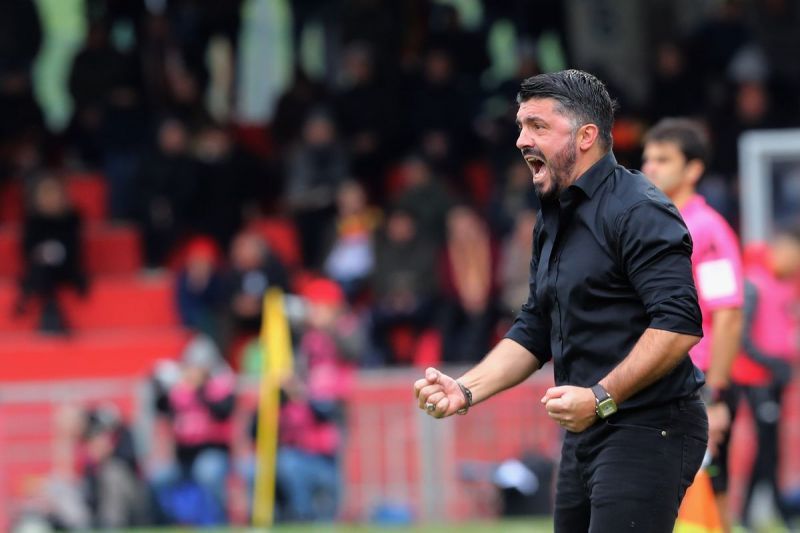
Around the time of Montella’s sacking, UEFA took a keen interest in Milan’s finances and the club’s potential lack of compliance with the Financial Fair play rules. In December 2017, UEFA’s investigatory chamber turned down AC Milan’s request for a voluntary agreement to be in accordance with FFP rules. In a statement, UEFA said that:
“There are still uncertainties in relation to the refinancing of the loans to be paid back in October 2018 and the financial guarantees provided by the main shareholder.”
But not all is gloom and doom for Gattuso’s men as an improvement on the pitch provides a beacon of hope for the supporters during these dark times.